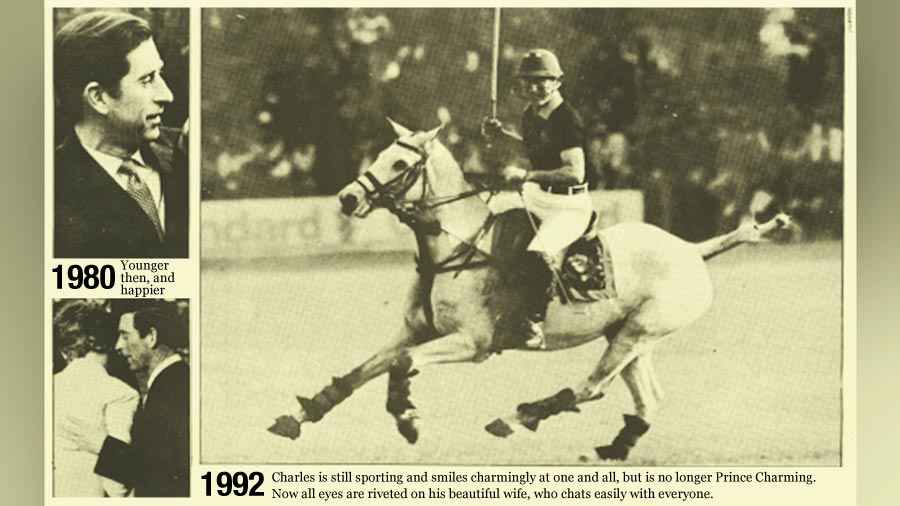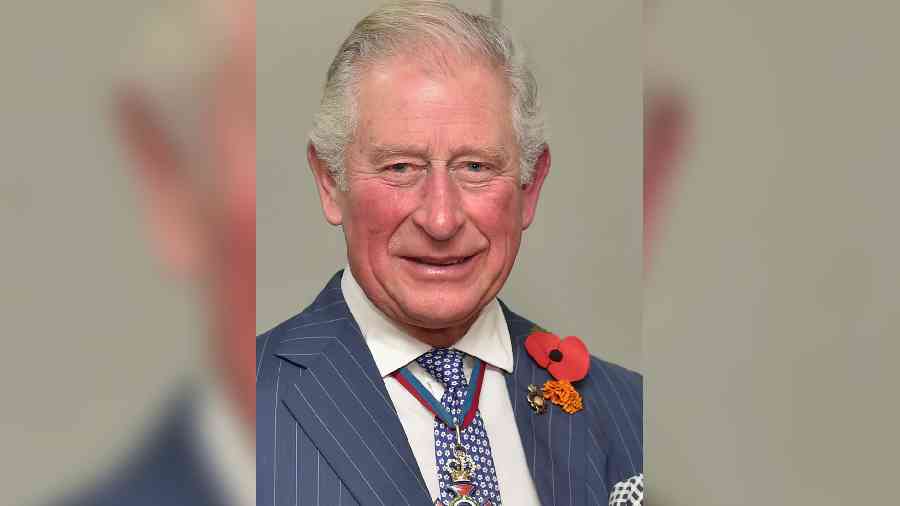He was much younger then, and happier, or at least happy-go-luckier. Perhaps it was the atmosphere or maybe the carefree days of bachelorhood. There was no hint of Lady Di at the time and he was still the darling of the British tabloid press which followed the adventures of their young prince around the world.
They were not allowed in our corner of Vancouver Island though, where the Prince of Wales was spending half a weekend. He was the patron of the United World Colleges (he still is), which ran, at the time, three international colleges in Wales, Canada and Singapore, where students from all over the world did a two-year pre-university course and promoted, so we believed, peace and international understanding.
We were also young and full of life and not at all in awe of the high and mighty and were, in fact, a little annoyed at the invasion of securitymen that preceded the royal visit into our paradisical home by the Pacific.
The Lester B. Pearson College of the Pacific was something of a showpiece in that part of the world and there was always a steady stream of VIPs oohing and aahing at the variety of human species that inhabited the place — Africans and Latinos and even a couple of communist Chinese! We usually looked bored and blase and avoided encounters of the VIP kind, which were routinely thrust upon the students by the faculty. But this was different.
Republicans all, and some even 'radical', trooped up the hill overlooking the Pacific Ocean to have tea with the monarch. It was a lovely spring afternoon sometime in 1980. The daffodils were out of Wordsworth and only the giant douglas firs and the silent ocean gave the Lake District atmosphere the rugged Canadian West Coast touch.
The Prince, who never spoke to the press, was relaxed and at ease among the students and was willing to chat and answer any question that was asked. It was his uncle, Lord Mountbatten, who had been closely associated with the UWC movement and had passed on the interest to the Prince.
A melancholy topic
We were wondering how to start a conversation between two hundred teenagers and a prince when our resident royal watcher, a Canadian redhead called Karen Shook, who took everything including herself very seriously, asked him how he had felt when Lord Mountbatten had been assassinated not very long ago. There were a few awkward moments, more awkward for the Irish radicals present, as the Prince spoke movingly about his fond relationship with his late uncle. Many of the students were livid with Ms Shook for having broached such a melancholy topic on a lovely day and were beginning to have second thoughts about the 'memorable' afternoon.
And then irreverence, in the form of Fawad Quraishi, a Canadian of Pakistani origin, took over. While Karen and other Canadians (who along with the Australians are more hung up on the British royalty than the Brits themselves) had been keeping track of royal tragedies, Fawad had kept tabs on the number of beauty queens and starlets who dashed in and out of nowhere to implant a kiss on the royal lips. Padmini Kohlapure was to do her number a little later, but there had been kisses galore in other parts of the world, the last known one in Australia.
Fawad, with a deadpan expression, asked, "Your Highness, that girl in Perth — was she for real or was she planted?" The college director, Jack Mathew, looked askance and others turned red at the audacity of the 'natives' but the Prince of Wales grimaced and groaned and said, "Oh, she was planted. The gorgeous ones are always planted —it is only the short, fat, hairy ones who are for real." Before the resident feminists, including the likes of Karen Shook, could take umbrage at the MCP remark, the Prince was regaling us with more anecdotes of the same kind.
Before the beauty queen at Perth (who dashed up to him in a bikini, kissed him and was dragged away) there was the Swiss beauty who had swung past him on skis and then carefully arranged a head-on collision. "I was trying to hold her, help her to her feet, but my security men insisted on taking her away," he said, nodding his head sadly, a wicked twinkle in his eye. Fawad for once, was speechless.
You win some, you lose some
The ice broken, there was a stream of questions, mostly on how awful it must be to be a monarch in a republican age. The Prince agreed but not quite— monarchy did not count for much but it still had a role, he insisted, which he was trying to fulfil as best he could. He missed out on the 'normal life' but had realised early on that not being able to cycle down the streets of London was one of the occupational hazards of being a resident of an abode called Buckingham Palace. You win some, you lose some, he seemed to say, dispelling both the 'poor little rich boy' and the 'I am the monarch of all I survey' image.
The next day, a handful of us were invited to his table for lunch at the cafeteria. Conversation flowed easily. There was Zobo Chimurenga from Rhodesia which was about to become Zimbabwe, who had spent his early teens fighting with Robert Mugabe's forces. What if Joshua Nkomo, Mugabe's rival, became the PM after independence, someone asked. Zobo flashed a very white smile and said, "Den we go back to de bushes."
The scene shifted from southern Africa to Afghanistan where the Russians had recently entered, a move the Prince was particularly critical of. There was a bit of an argument then, which got a little heated, about the US role in Vietnam. The US voluntarily left Vietnam because of public pressure whereas the Russians never would because no internal pressure could be exerted on the Kremlin, he said. We didn't agree. The Americans had left Vietnam only because the GIs were getting killed and not because of the Vietnamese toll, a couple of us insisted. He took the argument in his stride though we couldn't make him change his mind.
Dinner with Mrs Gandhi
And then came the most memorable anecdote, at least to Indian ears, of that lunch. What was Mrs Gandhi like, he asked and proceeded to give his own impression. He had met her only once, when he was in Delhi en route to either Bhutan or Nepal for the coronation of a king. Mrs Gandhi invited him to dinner.
It was a small gathering — just six people at the dinner table, and it had been an unnerving experience. "Everytime I addressed a question to her," the Prince recalled, "she looked through me, and made a statement to everyone at the table. I got the impression that she thought I was a bit of an upstart." Coming from the future king of England, it was perhaps the most fulsome compliment Indira Gandhi's imperiousness ever received!
Twelve years later, it was very different. He was with his wife at another Indian Prime Minister's table and from the looks of it, it could hardly have been unnerving. There were some 30-odd people at Narasimha Rao's private dinner at his Race Course Road residence and all eyes were riveted not on him but Princess Di. He had got used to it by now, and though he smiled charmingly at one and all, he was no longer Prince Charming. There was an instant look of wariness at being introduced to a journalist but it faded somewhat when he was told of the UWC connection — there was, of course, no recognition.
Alyque Padamsee, Amjad Ali Khan
He chatted quietly with the Prime Minister, with the CPI general secretary, Indrajit Gupta, and finance minister Manmohan Singh and cracked a joke or two with pop singer Sharon Prabhakar. Dinner was soon served, and groups of seven sat down to different tables. The royal couple sat on either side of the Prime Minister with Alyque Padamsee, Amjad Ali Khan and history professor Narayani Gupta sharing their table.
From what one could make out, it was the Princess' evening. It was a chilly February night and she wore nothing warm over her elegant sequino-ed blouse and lilac full length, slitted skirt.
The sarod maestro, who was sitting across the table, promptly walked up and draped his 500-year-old (so he said) gorgeous jamawar shawl over her shoulders amid much mirth. While the Prince spent the better part of the dinner quietly conversing with Dr Narayani Gupta on architecture, the Princess animatedly chatted away with Alyque Padamsee who, if her peals of laughter were any indication, provided excellent company.
Princess Diana, the star
Coffee was served inside, but here too Princess Diana was the star of the evening. The Prince listened intently to a couple of musicians who had rendered a sarod recital all through dinner, while the Princess chatted easily with the women. She spoke of her 'boys' aged seven and nine whom she missed terribly whenever away from home. It was difficult to take them on official visits, but she had taken them to Canada last year when the visit coincided with the school holidays. Did they like it? "They were fascinated by the Niagara Falls and wanted to know how many people had died there," she said.
Sharon Prabhakar fired most of the questions, on her clothes and hair style and make-up, all of which she answered easily, towering down over us from her near six foot frame. She liked the Taj very much but the high point of her visit, she hoped, would be a meeting with Mother Teresa whom she had tried to meet six times before but failed.
Being a celebrity always under the gaze of the tabloid press was what she hated most — "you never get used to it, you just learn to put up with it", she said, going back to talking of her children and how people forget that "women in public life are also mothers."
A shawl or a jacket?
When they were leaving, the Princess took off the shawl and tried to return it to Amjad Ali but he refused to have it back. He insisted that it was a gift she must keep. The Prince and Princess were both embarrassed and urged him to take it back but Mrs Amjad Ali Khan joined her husband and pleaded with "her highness" that it would be "an honour" if she kept the shawl.
She was still hesitant when Alyque Padamsee relieved the awkward situation. He took a neat jump, landed in front of her, took off his jacket and said, "I've got the answer. You keep this jacket and give me that shawl." She preferred the shawl. It was her evening all the way, but call it teenage nostalgia, one's vote would still go to 'Chuck'.
The writer is the former ‘Editor, Delhi’ of The Telegraph











